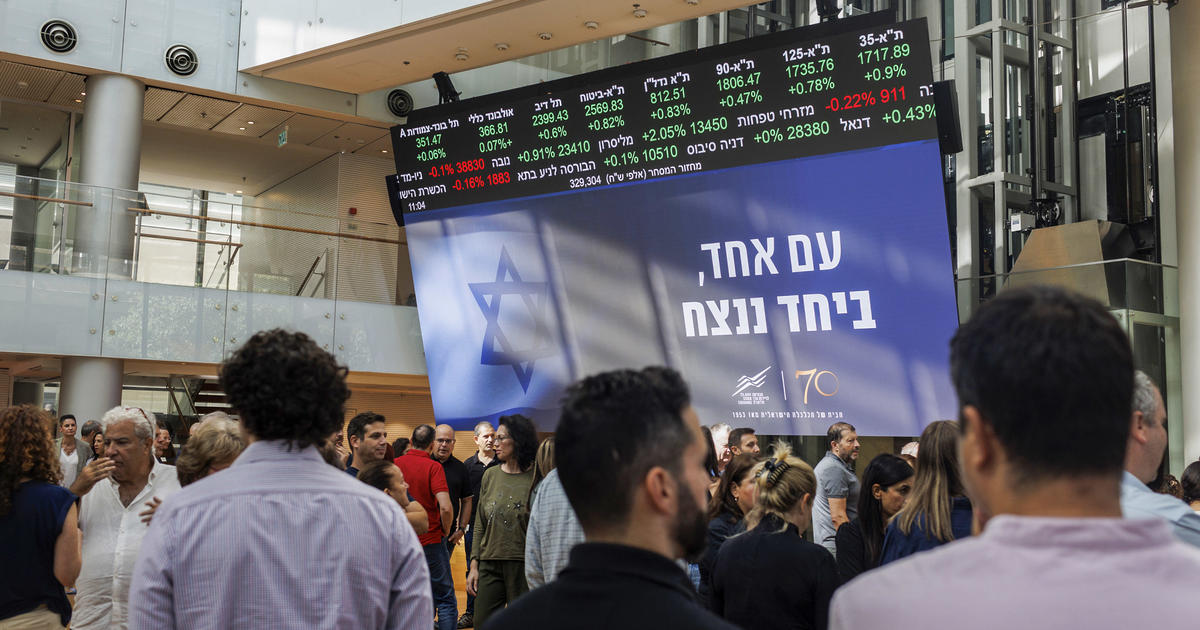Five days before the deadliest attack in Israel’s history, a warning may have appeared on stock exchanges.
A study by researchers from Columbia University and NYU called “Trading on Terror?” suggests that a trader may have been aware of the coming attack, bet against the Israeli economy and walked away with a profit by short selling on the U.S. and Israeli stock exchanges.
Short selling is a trading strategy aimed at making a profit off an asset that is expected to drop in price; the seller “borrows” a security and sells it on the open market with the goal of buying it back later at a lower price and pocketing the difference.
The study looked at the Israel Exchange-Traded Fund, a common way for people to make investments in Israel, which on any given day has around 2,000 shares shorted. On Oct. 2, that number shot up to over 227,000 shares.
According to Columbia Law School Professor Joshua Mitts, one of the authors of the study, “that’s extremely unusual.” It was also profitable: the shares sold short for one Israeli company alone yielded a profit of nearly $900,000.
Kobi Wolf/Bloomberg via Getty Images
Mitts and his co-author, Professor Robert J. Jackson Jr., ran a number of comparisons over the past 13 years to see whether the same thing had happened before other major moments of instability in Israel, like the 2014 Israel-Gaza war, the COVID-19 pandemic, or the judicial reform initiative that led millions of Israelis to take to the streets in protest.
They found that the short-selling activity in early October was “really extraordinary, even when you compare it to those periods of instability, which there were many.”
Something similar had happened before, though — on April 3, a couple of days before the Jewish holiday of Passover. The study links this to an Israeli media report claiming Hamas had initially planned its attack for the eve of Passover.
“It’s almost the same magnitude.What are the odds?” asks Mitts.
“The other thing we know,” he adds, “is that this looks to have been the product of a single trader, based on what we can see in the data. This is extraordinarily unusual.”
All of this led them to their conclusion that the trades were not a coincidence, but a tactic by someone who knew the attack was coming.
“We think it’s virtually impossible this happened by chance,” Mitts told CBS News.
Finding out exactly who made the trades, and the profit, would be “exceedingly difficult,” and Mitts says he is “pretty pessimistic” that whoever was betting against the Israeli economy will be found. Similarly, Mitts says it’s “not so easy to stop this sort of trading” from happening. Instead, he suggests a different goal.
“What we really need to be asking is how do we internalize this sort of trading information in the public consciousness, from an intelligence standpoint, from a public discussions standpoint, from a policy standpoint. What are these signals? What are they teaching us?”
There is growing evidence of the massive intelligence failures that preceded the Oct. 7 attacks. An Israeli soldier told CBS News last week that her team reported unusual activity on the Gaza side of the border beginning six months before the attack to her superiors in the IDF, but “they didn’t take anything seriously.”
Mitts says this study shows yet another missed signal: “The stock market was screaming, “There’s something going on!””
In response to the study, the Israel Securities Authority has said: “The matter is known to the authority and is under investigation by all the relevant parties.”
“I don’t mean to say we found the next prediction of the future,” Mitts says, but he believes their work points to a tool that must be incorporated into the intelligence arsenal. “We shouldn’t have to write the paper two months later that reveals this.”

